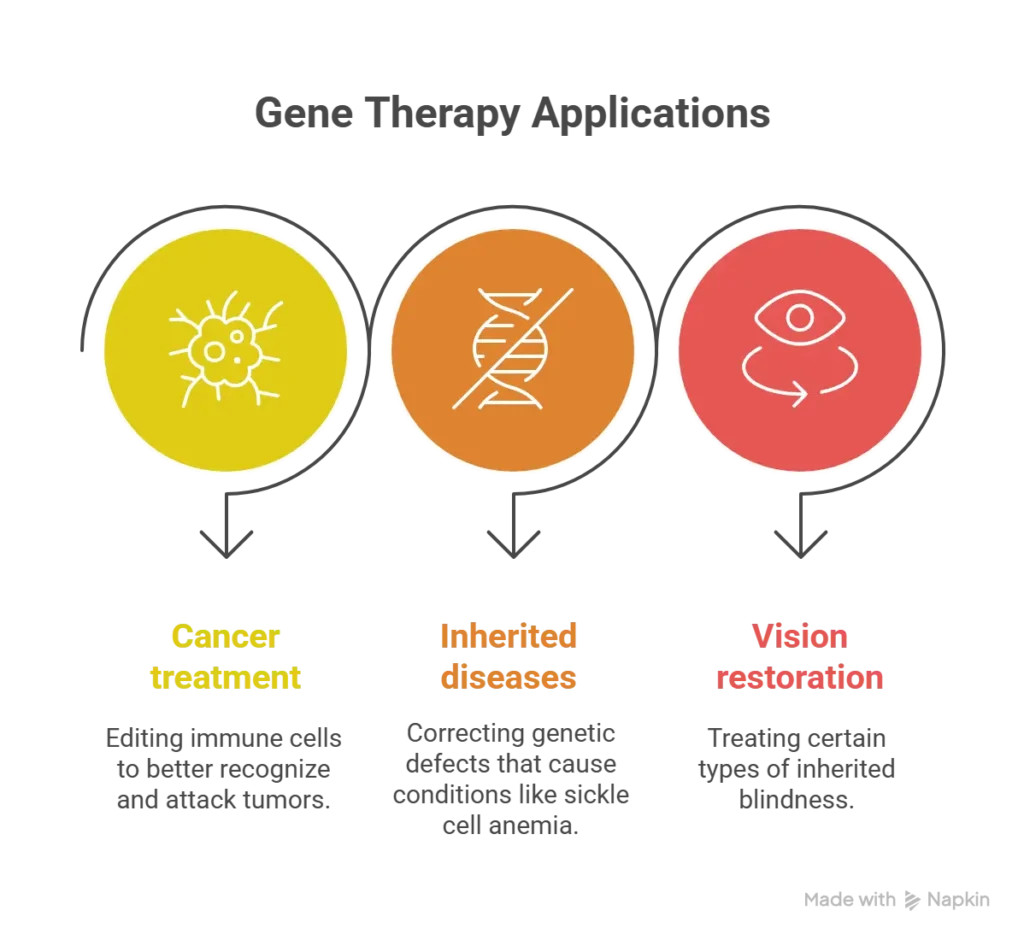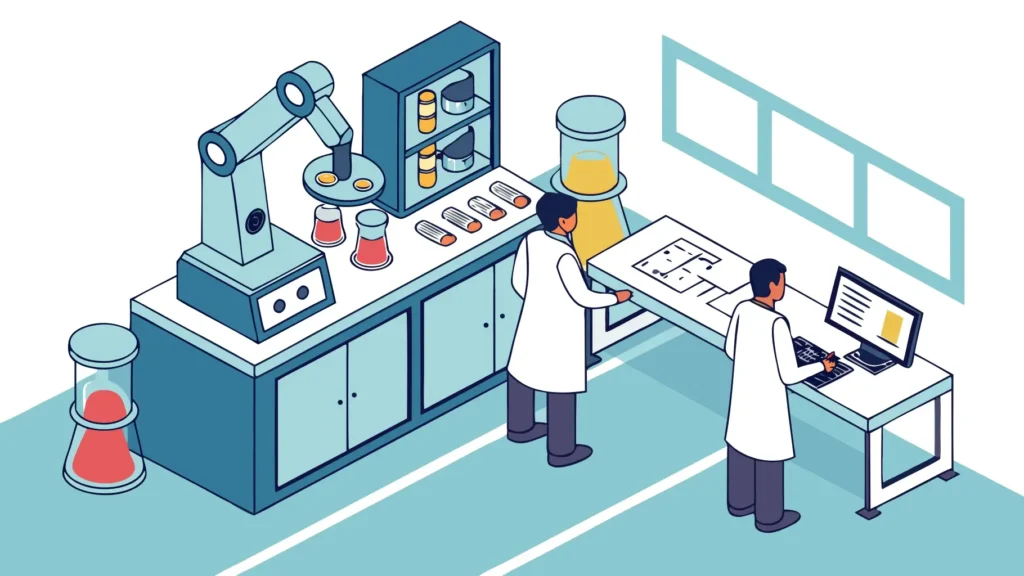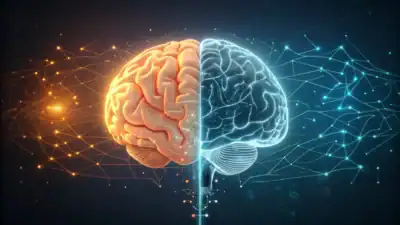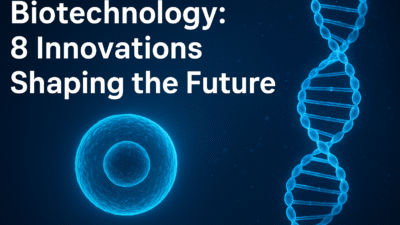Picture this: you walk into a doctor’s office in 2025, and instead of getting a generic prescription, you receive a treatment tailored specifically to your DNA. Your cancer medication is designed for your exact genetic makeup, your vaccines are personalized to your immune system, and your recovery plan is optimized based on biomarkers unique to you. This isn’t science fiction—it’s the reality that biotechnology is creating in healthcare right now.
I’ve been following the biotechnology industry space for years, and honestly? The pace of innovation is mind-blowing. We’re living through what I like to call the “Netflix moment” of medicine—everything is becoming personalized, smarter, and more effective. But what are the main applications of biotechnology in healthcare? Let’s dive deep into this fascinating world where biology meets cutting-edge technology.
Table of Contents
What is Biotech, and Why Should You Care?
Before we get into the good stuff, let’s clear up what we’re talking about. Biotechnology is essentially the marriage between biology and technology—using living organisms, cells, or biological processes to develop products and solutions that improve our lives. It’s different from traditional biology because instead of just studying life, we’re actively engineering it.
Think of traditional biology as reading a book, while biotech is rewriting the story. We’re not just observing how cells work; we’re programming them to work better. It’s like the difference between watching a movie and directing one.
The Healthcare Game-Changers: Main Applications of Biotechnology
1. Gene Therapy: Rewriting Your Genetic Code
Gene therapy is probably the most futuristic-sounding application, but it’s happening right now. Medical biotechnology applications are revolutionizing how we treat diseases that were once considered incurable.
Here’s how it works: scientists identify faulty genes causing diseases, then develop ways to either replace them, repair them, or add new genes to help fight the disease. It’s like having a microscopic repair crew that can fix problems at the cellular level.
Real-world example: Patients with severe combined immunodeficiency (SCID)—also known as “bubble boy disease”—can now receive gene therapy that essentially gives them a working immune system. Children who would have lived in isolation can now play outside, go to school, and live normal lives.
2. CRISPR Gene Editing: The Ultimate Biological Copy-Paste Tool
CRISPR gene editing is like having molecular scissors that can cut and paste DNA with incredible precision. I often describe it as the “autocorrect” for genetics—it finds mistakes in genetic code and fixes them.
The applications are staggering:
- Cancer treatment: Editing immune cells to better recognize and attack tumors
- Inherited diseases: Correcting genetic defects that cause conditions like sickle cell anemia
- Vision restoration: Treating certain types of inherited blindness

3. Personalized Medicine: Your Treatment, Your DNA
This is where things get really personal. Personalized medicine uses your genetic information to determine which treatments will work best for you. It’s like having a GPS for your health—instead of taking random turns hoping to reach your destination, you get turn-by-turn directions.
| Traditional Medicine | Personalized Medicine |
|---|---|
| One-size-fits-all treatments | Tailored to individual genetics |
| Trial-and-error approach | Precision targeting |
| Generic dosing | Optimized dosing based on metabolism |
| Reactive treatment | Predictive prevention |
4. Biopharmaceuticals: Living Drugs
Unlike traditional chemical drugs, biopharmaceuticals are made using living organisms. These “living drugs” include:
- Monoclonal antibodies for cancer treatment
- Insulin produced by genetically modified bacteria
- Growth hormones for children with growth disorders
- Vaccines developed using bioengineered processes
The beauty of biopharmaceuticals is their specificity. They’re designed to target exactly what needs to be treated, causing fewer side effects than traditional drugs.
The Tech Revolution: AI in Biotechnology Research
Here’s where things get really exciting. AI in biotechnology research is accelerating discoveries at an unprecedented pace. Machine learning algorithms can now:
- Predict how proteins will fold
- Identify potential drug compounds in days instead of years
- Analyze genetic data to find disease patterns
- Optimize clinical trial designs
I recently spoke with a researcher who told me that AI helped them identify a potential Alzheimer’s treatment in six months—a process that traditionally takes several years. That’s the kind of acceleration we’re talking about.

Breakthrough Technologies Reshaping Healthcare
Synthetic Biology: Programming Life
Synthetic biology takes biotechnology to the next level. Instead of just modifying existing biological systems, scientists are creating entirely new ones from scratch. It’s like going from renovating a house to building a custom home from the ground up.
Applications include:
- Biosensors that can detect diseases in real-time
- Engineered microbes that produce medications in your gut
- Artificial organs grown from your own cells
Regenerative Medicine: Growing New Body Parts
This field focuses on repairing or replacing damaged tissues and organs. The latest advances in biotechnology include:
- 3D bioprinting of tissues and organs
- Stem cell therapy for treating various conditions
- Tissue engineering for repairing damaged hearts, kidneys, and other organs
Imagine needing a new heart and growing one from your own cells instead of waiting for a donor. That’s where we’re headed.
Industry Leaders and Innovation Hubs
Top Biotech Companies Driving Change
The biotech industry is dominated by both established giants and innovative startups. Top biotech companies in the US include:
Established Players:
- Amgen: Pioneering protein-based drugs
- Gilead Sciences: Leading in antiviral treatments
- Biogen: Focusing on neurological diseases
- Moderna: Revolutionary mRNA technology
Rising Stars: Some of the best biotechnology startups 2025 are focusing on:
- AI-driven drug discovery
- Personalized cancer treatments
- Gene editing technologies
- Digital health solutions
Safety and Regulation: Keeping Innovation Responsible
One question I hear constantly is: Are biotech products safe for consumers? The answer is complex but reassuring. Biotech patents and regulations ensure that products undergo rigorous testing before reaching patients.
Regulatory Framework
Which agencies regulate biotechnology products? Three main agencies oversee different aspects:
- FDA (Food and Drug Administration): Oversees drugs, biologics, and medical devices
- EPA (Environmental Protection Agency): Regulates environmental releases
- USDA (United States Department of Agriculture): Handles agricultural applications
The approval process typically takes years and involves multiple phases of clinical trials. It’s thorough, sometimes frustratingly so, but it’s designed to protect you.
Beyond Healthcare: Biotech’s Broader Impact
Agricultural Applications
While we’re focusing on healthcare, it’s worth noting that biotechnology solutions for climate change extend into agriculture. Biotech is creating:
- Drought-resistant crops
- Plants that require fewer pesticides
- Enhanced nutritional content in foods
What is the difference between bioengineered foods and non-GMO foods? Bioengineered foods have been modified using biotechnology to enhance certain traits, while non-GMO foods haven’t been genetically modified. Both undergo safety testing, but consumer preference varies.
Environmental Solutions
Biotechnology isn’t just healing people; it’s healing the planet. Applications include:
- Biofuels that reduce carbon emissions
- Microbes that clean up oil spills
- Plastic-eating enzymes that tackle pollution
Career Opportunities: Your Future in Biotech
What careers are available in the biotech sector? The opportunities are diverse and growing rapidly:
Research and Development:
- Biotechnology research scientist
- Genetic counselor
- Bioinformatics specialist
- Clinical research coordinator
Business and Commercial:
- Biotech product manager
- Regulatory affairs specialist
- Business development manager
- Patent attorney specializing in biotech
Manufacturing and Quality:
- Bioprocess engineer
- Quality control analyst
- Manufacturing technician
- Validation specialist
The careers in biotechnology companies often offer excellent compensation, intellectual stimulation, and the satisfaction of contributing to life-saving innovations. Many universities now offer affordable biotech degrees online, making the field more accessible than ever.
Investment and Market Trends
For those interested in the financial side, investment strategies for biotech stocks require understanding the unique risks and rewards of this sector. Biotech stocks are notoriously volatile but can offer substantial returns when companies achieve breakthrough approvals.
List of biotech industry trends to watch:
- Consolidation of smaller biotech companies
- Increased focus on rare diseases
- Integration of AI and machine learning
- Rise of precision medicine
- Growth in contract research organizations
The Future: What’s Coming Next?
Emerging Technologies
The future of biotech in agriculture and healthcare is converging in fascinating ways. We’re seeing:
- Nanotechnology for targeted drug delivery
- Quantum computing for molecular modeling
- Blockchain for secure genetic data storage
- IoT sensors for continuous health monitoring
Challenges and Opportunities
What is the future outlook for the biotech industry? Despite challenges like regulatory hurdles and high development costs, the outlook is incredibly positive. The global biotech market is expected to reach over $2.4 trillion by 2028.
Key drivers include:
- Aging global population
- Increased prevalence of chronic diseases
- Growing demand for personalized medicine
- Technological advances reducing development costs
Global Impact and Accessibility
One of the most exciting aspects of biotechnology is its potential to address global health challenges. Can biotechnology help address global food security or climate change? Absolutely. We’re seeing:
- Development of nutritionally enhanced crops for developing countries
- Creation of affordable diagnostic tools for resource-limited settings
- Innovative solutions for clean water and sustainable energy
However, ensuring equitable access to these innovations remains a significant challenge. The biotech community is increasingly focused on developing solutions that can benefit everyone, not just those in wealthy countries.
Addressing Common Concerns
What are GMOs and how are they related to biotech?
GMOs (Genetically Modified Organisms) are one application of biotechnology. They’re organisms whose genetic material has been altered using genetic engineering techniques. In healthcare, GMOs are used to produce medications like insulin and growth hormones.
What are some recent breakthroughs in the biotech industry?
Recent breakthroughs include:
- COVID-19 mRNA vaccines developed in record time
- Gene therapy approvals for previously untreatable diseases
- CAR-T cell therapy for certain blood cancers
- Base editing techniques that allow precise DNA modifications
What are the environmental impacts of biotechnology?
Biotechnology can have both positive and negative environmental impacts. On the positive side, it’s creating solutions for pollution cleanup, sustainable energy, and reduced chemical use in agriculture. The negative impacts are typically related to concerns about genetic modification and potential ecological disruption, which is why regulatory oversight is so important.
Making It Personal: Why This Matters to You
Here’s the thing—biotechnology isn’t just about fancy labs and billion-dollar companies. It’s about you, your family, and your future health. Every breakthrough brings us closer to a world where:
- Cancer becomes a manageable chronic condition
- Genetic diseases are prevented before birth
- Organs can be grown on demand
- Aging is slowed or even reversed
I’ve seen friends whose lives were saved by biotech innovations that didn’t exist a decade ago. One colleague’s daughter received gene therapy for a rare disease that would have been fatal just five years earlier. Another friend participates in a clinical trial for a biotech treatment that’s giving him years with his family that he wouldn’t have had otherwise.
The Bottom Line
So, what are the main applications of biotechnology in healthcare? We’ve covered gene therapy, personalized medicine, biopharmaceuticals, regenerative medicine, and diagnostic tools. But the real answer is broader: biotechnology is fundamentally changing how we prevent, diagnose, and treat diseases.
The convergence of biology, technology, and data science is creating possibilities that seemed impossible just a generation ago. We’re not just treating symptoms anymore—we’re addressing root causes at the genetic and molecular level.
As we look toward the future, the potential applications seem limitless. From AI-powered drug discovery to synthetic biology solutions, from personalized treatments to global health initiatives, biotechnology is writing the next chapter of human health.
Whether you’re a patient hoping for better treatments, a student considering a career path, an investor looking for opportunities, or simply someone curious about the future of medicine, biotechnology offers something remarkable: hope backed by science.
The biotech revolution isn’t coming—it’s here. And honestly? We’re just getting started.
Frequently Asked Questions
Q: What are the main applications of biotechnology in healthcare?
A: The main applications of biotechnology in healthcare include gene therapy for treating inherited diseases, personalized medicine that tailors treatments to your DNA, biopharmaceuticals like insulin and cancer-fighting antibodies, regenerative medicine for growing new tissues and organs, and AI-powered drug discovery that accelerates the development of new treatments. These applications are revolutionizing how we prevent, diagnose, and treat everything from cancer and genetic disorders to chronic diseases like diabetes and heart disease.
Q: How does CRISPR gene editing work in medicine, and is it safe?
A: CRISPR works like molecular scissors that can precisely cut and edit DNA sequences at specific locations. In medicine, doctors use CRISPR to correct genetic defects that cause diseases, enhance immune cells to better fight cancer, and potentially cure inherited conditions like sickle cell anemia. The safety profile is continuously improving—current CRISPR therapies undergo rigorous FDA testing and clinical trials. While early concerns about off-target effects existed, newer versions like base editing and prime editing offer even greater precision and safety.
Q: What’s the difference between biotech treatments and traditional pharmaceutical drugs?
A: Traditional pharmaceutical drugs are typically small chemical molecules created through chemical synthesis, while biotech treatments are made using living organisms or biological processes. Biotech treatments include proteins, antibodies, gene therapies, and cell-based therapies that are much larger and more complex. The key advantage? Biotech treatments can be incredibly specific—like a guided missile targeting exactly what needs to be treated—often resulting in fewer side effects. However, they’re typically more expensive to develop and manufacture than traditional drugs.
Q: Which biotech companies are leading healthcare innovation in 2025?
A: The top biotech companies driving healthcare innovation include established giants like Amgen (protein-based drugs), Moderna (mRNA technology), Gilead Sciences (antiviral treatments), and Biogen (neurological diseases). Rising stars include companies focusing on AI-driven drug discovery, personalized cancer treatments, and gene editing technologies. Many of the most innovative biotech startups are developing CRISPR applications, synthetic biology solutions, and digital health platforms that integrate with biotechnology. The landscape is rapidly evolving, with new players emerging regularly as the field advances.
Q: How much do biotech treatments cost, and will they become more affordable?
A: Biotech treatments currently range from thousands to hundreds of thousands of dollars, with gene therapies like Zolgensma costing over $2 million per treatment. However, costs are expected to decrease significantly as manufacturing processes improve, competition increases, and production scales up. Many biotech companies are developing more cost-effective manufacturing methods, and AI is reducing drug development timelines and costs. Additionally, biosimilar medications (generic versions of biotech drugs) are becoming available, offering the same benefits at lower prices. Insurance coverage is also expanding as these treatments prove their long-term value.





